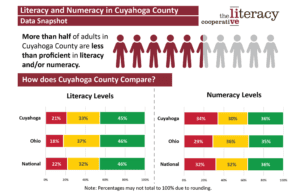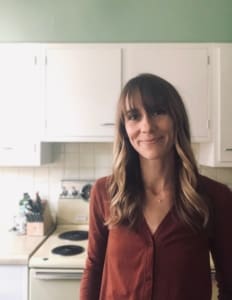Read Across America Day 2022 Author Spotlight with Ebony Donley
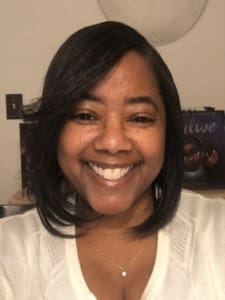
In honor of this year’s Read Across America Day theme being diversity and inclusion, The Literacy Cooperative highlighted several local authors who were either diverse in their identity or emphasized diversity within their work. Ebony Donley, Cleveland Metropolitan School District (CMSD) educator and owner of Literacy Innovations is one of the local authors in our spotlight.
Tell me about you.
Ebony Donley: I have been an educator for 21 years and have been with CMSD that entire time. I started a tutoring company seven years ago because I wanted to expand upon the things that I do during the school day. I began to notice that even though we were teaching the standards of what children needed to know, some students needed more help than others with certain concepts, prompting me to start my own tutoring company, Literacy Innovations.
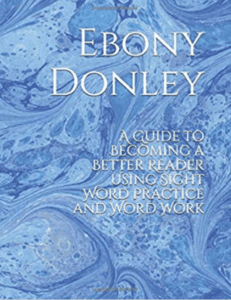
How do you like being a tutor and how have you transitioned throughout that journey?
Ebony: I love every minute of being a tutor because I have the opportunity to use my expertise in a different way and tailor my lessons to a particular student. When being a teacher you are teaching to the masses, but when you are tutoring, you get the chance to learn a student’s strengths and weaknesses.
In regard to transitioning, I have not changed my focus much because literacy has always been my passion, but I will say that I have gone back further as it pertains to sight words. The need to go back further led to me writing my book, A Guide to Becoming a Better Reader Using Sight Word Practice.
What inspires you?
Ebony: I am inspired by teaching and learning but I am most inspired when I see a student whom I have helped excel in their studies. Watching a student’s confidence and grades soar continues to inspire me to keep going.
It is also important to mention that due to my educational family game nights, I have begun working with students across the United States, in states like Kentucky, Indiana, and even Georgia. Prior to the pandemic, at these events, I would provide parents with tips and resources and during the pandemic, I began posting resources for parents on YouTube and Facebook. Once things get back to normal I do plan to start these events back up because I love it and parents and children alike find them incredibly fun and helpful.
Could you tell me the names of your books and briefly explain why you decided to write them?
Ebony: I wrote A Guide to Becoming a Better Reader Using Sight Word Practice because I noticed a pattern of students from Kindergarten up to fourth grade struggling with sight words so I was giving parents resources on how to help them. This prompted me to write my book because I wanted it to be a guide to the parents. Comprehension Matters was written because I wanted to provide parents with additional information on how they could best help their children.
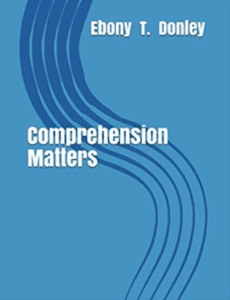 Both of these books were written with the intention of being a guide. When writing them I followed the states guides and provided figurative language, parts of speech, and more. I also provided an answer key, key terms, and a glossary to make it of more ease for parents. I give students an opportunity to use the concepts that they learn. It is a guide for parents to use to help their children become better readers.
Both of these books were written with the intention of being a guide. When writing them I followed the states guides and provided figurative language, parts of speech, and more. I also provided an answer key, key terms, and a glossary to make it of more ease for parents. I give students an opportunity to use the concepts that they learn. It is a guide for parents to use to help their children become better readers.
What was the most difficult part about writing your books?
Ebony: The most difficult part was figuring out what exactly to put in the book; I have taught all grades so it was difficult condensing necessary information for parents while giving them the most out of their money.
Learn more about Ebony Donley here.
Learn more about our other Read Across America Day events here.

